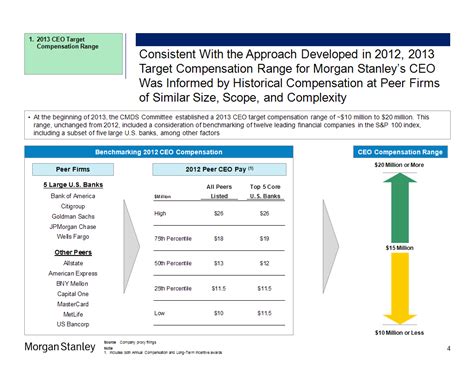Decoding Compensation Determination: A Holistic Perspective

Compensation determination is an essential aspect of any organization’s human resource management strategy. It involves assessing and deciding on the appropriate compensation packages for employees based on their job roles and responsibilities, skills, experience, and performance. However, the process of compensation determination is not always straightforward and can involve several factors that need to be considered to arrive at a fair and equitable compensation package.
Factors to Consider in Compensation Determination
Job Evaluation
Job evaluation is the process of analyzing and assessing the value of a job position within an organization. It involves identifying the job’s key responsibilities, skills, and requirements and comparing them to similar job positions in the industry or market. Job evaluation helps in determining the appropriate compensation package for the job position and ensuring that it aligns with the organization’s goals and objectives.
Market Analysis
Market analysis involves researching and analyzing industry or market trends to determine the prevailing compensation rates for similar job positions. It helps in ensuring that the organization’s compensation packages are competitive and attract and retain top talent in the industry.
Employee Performance
Employee performance is a critical factor in compensation determination. It involves assessing an employee’s job performance and contributions to the organization and determining the appropriate compensation package based on their performance. High-performing employees may receive higher compensation packages than average or low-performing employees.
Skills and Experience
Skills and experience are essential factors in compensation determination. Employees with specialized skills or extensive experience in their job positions may receive higher compensation packages than those with less experience or fewer specialized skills. The organization’s compensation packages should align with the employees’ skills and experience to attract and retain top talent.
Cost of Living
The cost of living is an important factor in compensation determination, especially for organizations with employees in different geographical locations. The cost of living in different regions varies, and organizations should consider this when determining compensation packages for their employees in different locations.
Company Culture and Values
The organization’s culture and values can also influence compensation determination. Compensation packages should align with the organization’s culture and values to ensure that employees feel valued and appreciated for their contributions to the organization.
Conclusion
Compensation determination is a complex process that requires a holistic perspective to ensure that it aligns with the organization’s goals, objectives, and values. Job evaluation, market analysis, employee performance, skills and experience, cost of living, and company culture and values are all essential factors that need to be considered in compensation determination. By taking a holistic approach, organizations can ensure that their compensation packages are fair, equitable, and competitive, and attract and retain top talent in the industry.
FAQs
What is compensation determination?
Compensation determination is the process of assessing and deciding on the appropriate compensation packages for employees based on their job roles and responsibilities, skills, experience, and performance.
What factors are considered in compensation determination?
Factors such as job evaluation, market analysis, employee performance, skills and experience, cost of living, and company culture and values are all essential factors that need to be considered in compensation determination.
Why is compensation determination important?
Compensation determination is important for attracting and retaining top talent in the industry, ensuring that employees feel valued and appreciated for their contributions to the organization, and aligning the organization’s compensation packages with its goals, objectives, and values.
What is job evaluation?
Job evaluation is the process of analyzing and assessing the value of a job position within an organization. It involves identifying the job’s key responsibilities, skills, and requirements and comparing them to similar job positions in the industry or market.
What is market analysis in compensation determination?
Market analysis involves researching and analyzing industry or market trends to determine the prevailing compensation rates for similar job positions. It helps in ensuring that the organization’s compensation packages are competitive and attract and retain top talent in the industry.
What is employee performance in compensation determination?
Employee performance is a critical factor in compensation determination. It involves assessing an employee’s job performance and contributions to the organization and determining the appropriate compensation package based on their performance.
